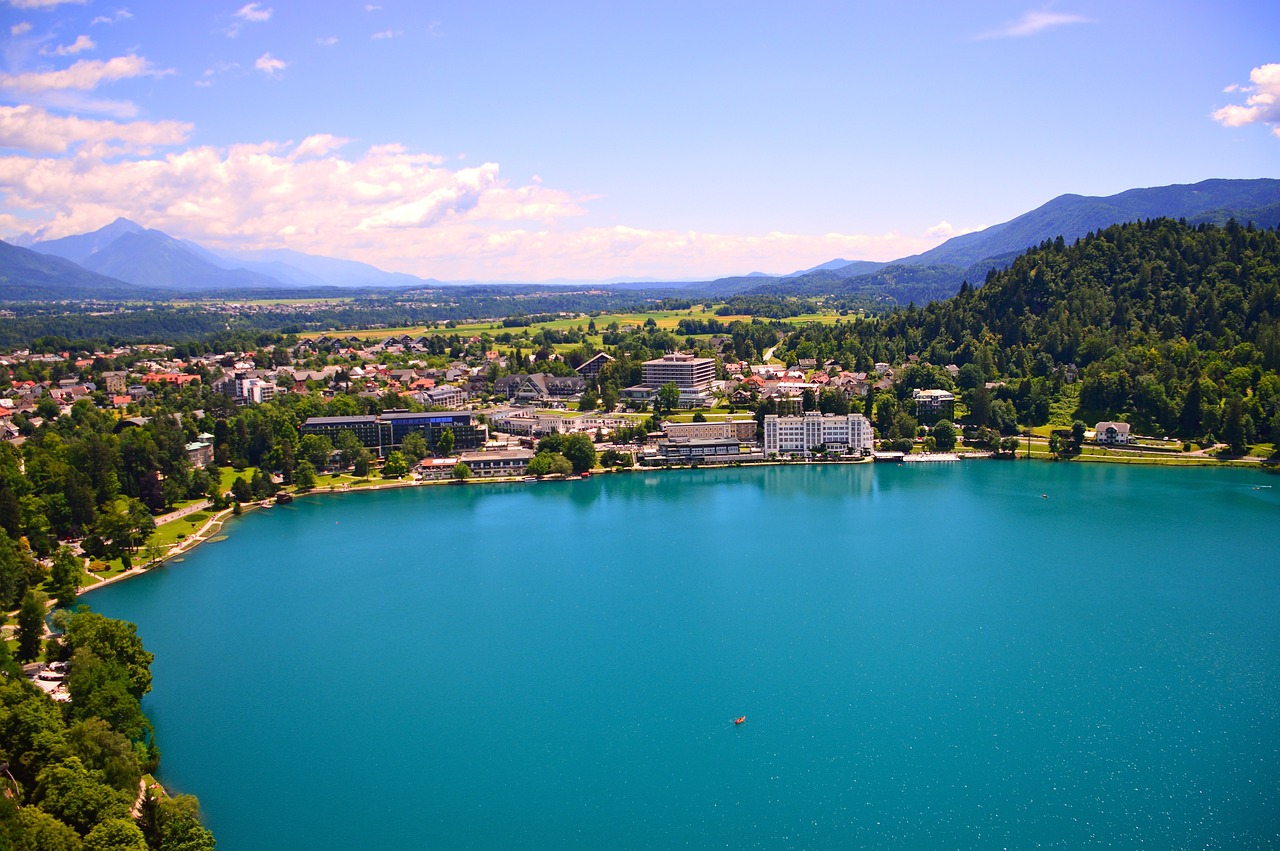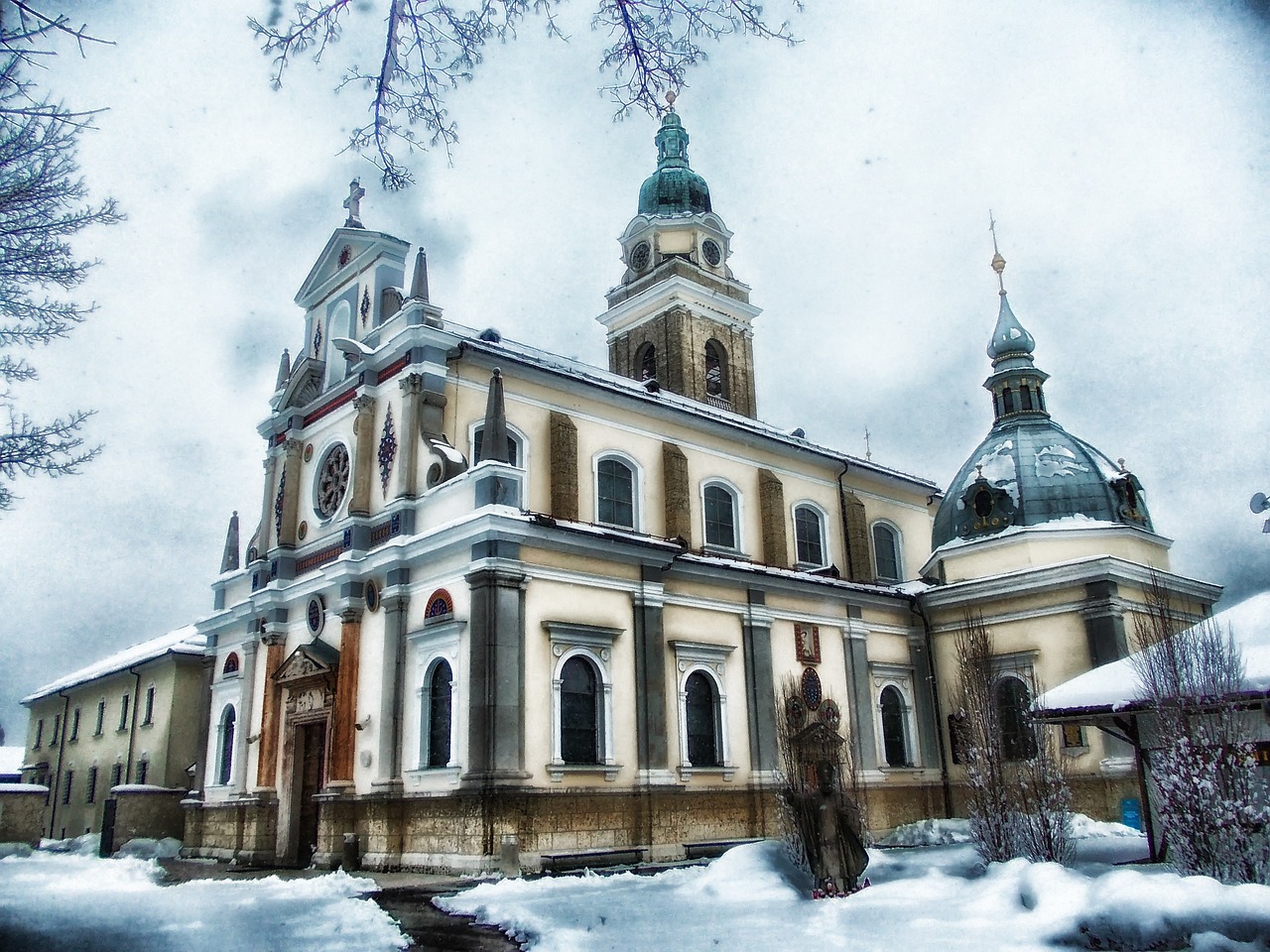Slovenia Video
Language and Communication: Overcoming Barriers in Slovenia
Language and communication play a significant role in our daily lives. They are essential tools for expressing thoughts, emotions, and ideas. In a multicultural society like Slovenia, where various languages are spoken, overcoming language barriers is crucial for effective communication. This article explores the challenges faced in language and communication within Slovenia and provides insights into how these barriers can be overcome.
Section 1: Multilingual Society
Slovenia is a country located in Central Europe, bordered by Italy, Austria, Hungary, and Croatia. It is known for its diverse linguistic landscape, with Slovene being the official language. However, due to historical and geographical factors, several minority languages are also spoken, including Hungarian, Italian, and Romani. This multilingual society poses unique challenges and opportunities for language and communication.
- Linguistic Diversity: Slovenia’s linguistic diversity reflects its rich cultural heritage. The presence of multiple languages allows for cross-cultural exchange and fosters a sense of inclusivity.
- Language Education: The Slovenian education system recognizes the importance of multilingualism. Language education programs focus on teaching Slovene as the primary language while providing opportunities for students to learn other languages.
- Translation and Interpretation Services: To bridge the language gap, translation and interpretation services are available in various sectors, such as healthcare, government, and tourism. These services facilitate effective communication between individuals who speak different languages.
- Cultural Integration: Embracing linguistic diversity promotes cultural integration and understanding among different ethnic groups in Slovenia. It encourages individuals to appreciate and respect different languages and cultures.
Section 2: Language Barriers in Daily Life
While Slovenia celebrates its linguistic diversity, language barriers can still pose challenges in daily life. Understanding and addressing these barriers are essential for effective communication and social integration.
- Tourism: Slovenia attracts a significant number of international tourists each year. Language barriers can hinder effective communication between tourists and locals, affecting their overall experience. However, many tourism-related businesses offer multilingual staff and materials to overcome this challenge.
- Healthcare: In the healthcare sector, language barriers can impede accurate diagnosis and treatment. To address this, medical institutions provide language assistance services, including professional interpreters and translated medical documents.
- Education: Non-native speakers of Slovene may face challenges in educational settings. Schools and universities offer language support programs to help students overcome language barriers and fully participate in their studies.
- Employment: Language barriers can limit employment opportunities for non-native Slovene speakers. However, employers are increasingly recognizing the value of multilingual employees and providing language training programs to enhance communication in the workplace.
Section 3: Overcoming Language Barriers
Overcoming language barriers requires proactive efforts from individuals, institutions, and society as a whole. Here are some strategies to facilitate effective communication in Slovenia:
- Language Learning: Learning the local language, Slovene, is crucial for integrating into Slovenian society. It enables individuals to communicate with locals and participate fully in various aspects of life.
- Language Exchange Programs: Language exchange programs provide opportunities for locals and non-native speakers to practice different languages. These programs foster mutual understanding and bridge the communication gap.
- Technology: Technology can be a powerful tool in overcoming language barriers. Translation apps, online resources, and language learning platforms can facilitate communication and language acquisition.
- Cultural Sensitivity: Cultural sensitivity plays a vital role in effective communication. Understanding and respecting cultural differences can enhance cross-cultural interactions and minimize misunderstandings.
Slovenia Image 1:

Section 4: Language Policies
To promote linguistic diversity and address language barriers, Slovenia has implemented various language policies. These policies aim to ensure equal language rights and opportunities for all individuals, regardless of their linguistic background.
- Official Language: Slovene is recognized as the official language of Slovenia. It is used in government institutions, education, and official documentation.
- Minority Language Rights: Slovenia has ratified the European Charter for Regional or Minority Languages, which protects the rights of minority language speakers. This includes the provision of education and public services in minority languages.
- Language Legislation: Slovenian legislation promotes language rights and regulates language use in various domains, such as public administration, media, and advertising.
- Language Planning: Language planning initiatives aim to preserve and develop Slovene, as well as minority languages. These initiatives include language promotion campaigns and the development of language policy strategies.
Section 5: Language and Economic Development
Language and communication also play a crucial role in the economic development of Slovenia. Effective communication can foster business relationships, attract investments, and promote international cooperation.
- Business Communication: Multilingual communication skills are highly valued in the business sector. Slovenian businesses that can effectively communicate with international partners gain a competitive edge in the global market.
- Language Services Industry: The demand for translation and interpretation services has increased, creating opportunities for language professionals and contributing to the country’s economy.
- Cross-Cultural Training: Cross-cultural training programs equip individuals with the necessary skills to navigate cultural differences and communicate effectively in international business settings.
Slovenia Image 2:

Section 6: Language and Social Integration
Language proficiency is crucial for social integration and building strong community ties. Effective communication fosters understanding, empathy, and cooperation among individuals from different cultural backgrounds.
- Community Language Classes: Community language classes provide opportunities for non-native speakers to learn Slovene and connect with the local community.
- Social Events and Gatherings: Participating in social events and gatherings allows individuals to practice their language skills and establish meaningful connections with locals.
- Volunteer Work: Engaging in volunteer work enables individuals to contribute to society while improving their language skills and cultural understanding.
Section 7: Digital Communication and Language
In today’s digital age, digital communication platforms have become essential for connecting people from different parts of the world. However, language barriers can still exist in online interactions.
- Translation Tools: Online translation tools, such as Google Translate, facilitate communication between individuals who speak different languages. These tools, although not always perfect, can help bridge the language gap.
- Multilingual Content: Websites and online platforms can provide multilingual content to reach a broader audience and ensure inclusivity.
- Language Learning Apps: Mobile language learning apps offer convenient ways to learn new languages and enhance communication skills.
Slovenia Image 3:

Section 8: Language and Cultural Preservation
Language is closely tied to culture, and preserving linguistic diversity contributes to the preservation of cultural heritage. Slovenia recognizes the importance of language in cultural preservation.
- Language Documentation: Linguists and researchers document endangered languages spoken in Slovenia to preserve their unique features and cultural significance.
- Cultural Festivals: Cultural festivals celebrate linguistic diversity and showcase traditional languages, music, and dance.
- Language Revitalization: Efforts are made to revitalize endangered languages through language revitalization programs, educational initiatives, and community involvement.
Section 9: Language and Tourism
Tourism plays a significant role in Slovenia’s economy, and effective communication is crucial for providing a positive experience for tourists.
- Tourist Information Centers: Tourist information centers provide multilingual assistance to tourists, ensuring they receive accurate information and guidance.
- Language Training for Tourism Professionals: Language training programs are offered to tourism professionals to enhance their communication skills and provide excellent service to international visitors.
- Translation of Tourism Materials: Translating tourism materials, such as brochures and websites, into multiple languages helps attract a diverse range of tourists.
Section 10: Language and Education
Language plays a crucial role in education, and Slovenia emphasizes the importance of language proficiency in the learning process.
- Bilingual Education: Bilingual education programs promote language proficiency in both Slovene and minority languages, ensuring equal educational opportunities for all students.
- Language Support Programs: Language support programs assist students with limited proficiency in Slovene, helping them integrate into mainstream education.
- Exchange Programs: Student exchange programs provide opportunities for cultural and language immersion, fostering cross-cultural understanding and language acquisition.
Section 11: Language and Legislation
Legislation plays a crucial role in addressing language barriers and ensuring language rights for all individuals in Slovenia.
- Language Equality Laws: Laws and regulations promote language equality and protect the rights of individuals to access public services in their preferred language.
- Language Rights Advocacy: Language rights advocacy groups work to raise awareness and advocate for the rights of minority language speakers in Slovenia.
- Language Impact Assessments: Language impact assessments are conducted to evaluate the effects of language policies and initiatives on different language communities.
Section 12: Conclusion
Overcoming language barriers in Slovenia is a continuous process that requires collaboration and understanding among individuals, institutions, and society. By promoting language learning, providing language services, and embracing linguistic diversity, Slovenia can create a more inclusive and communicative society.
References
– Ministry of Culture of the Republic of Slovenia: culture.si
– Government of the Republic of Slovenia: www.gov.si
– Slovenian Tourist Board: www.slovenia.info
– European Charter for Regional or Minority Languages: www.coe.int


